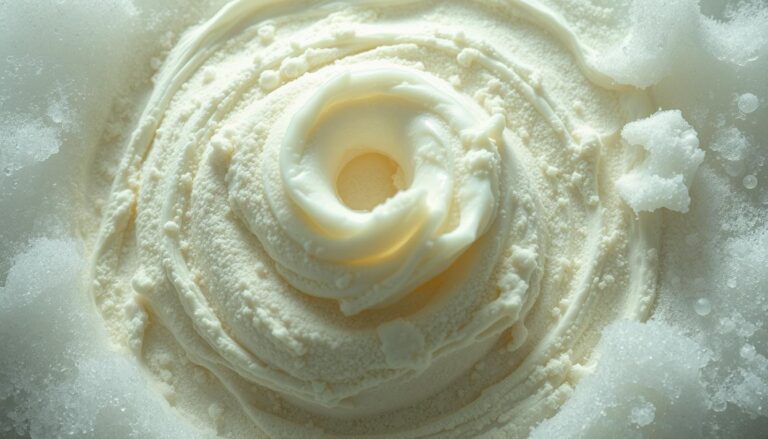How is a Deep Cleaning Different from a Regular Cleaning?
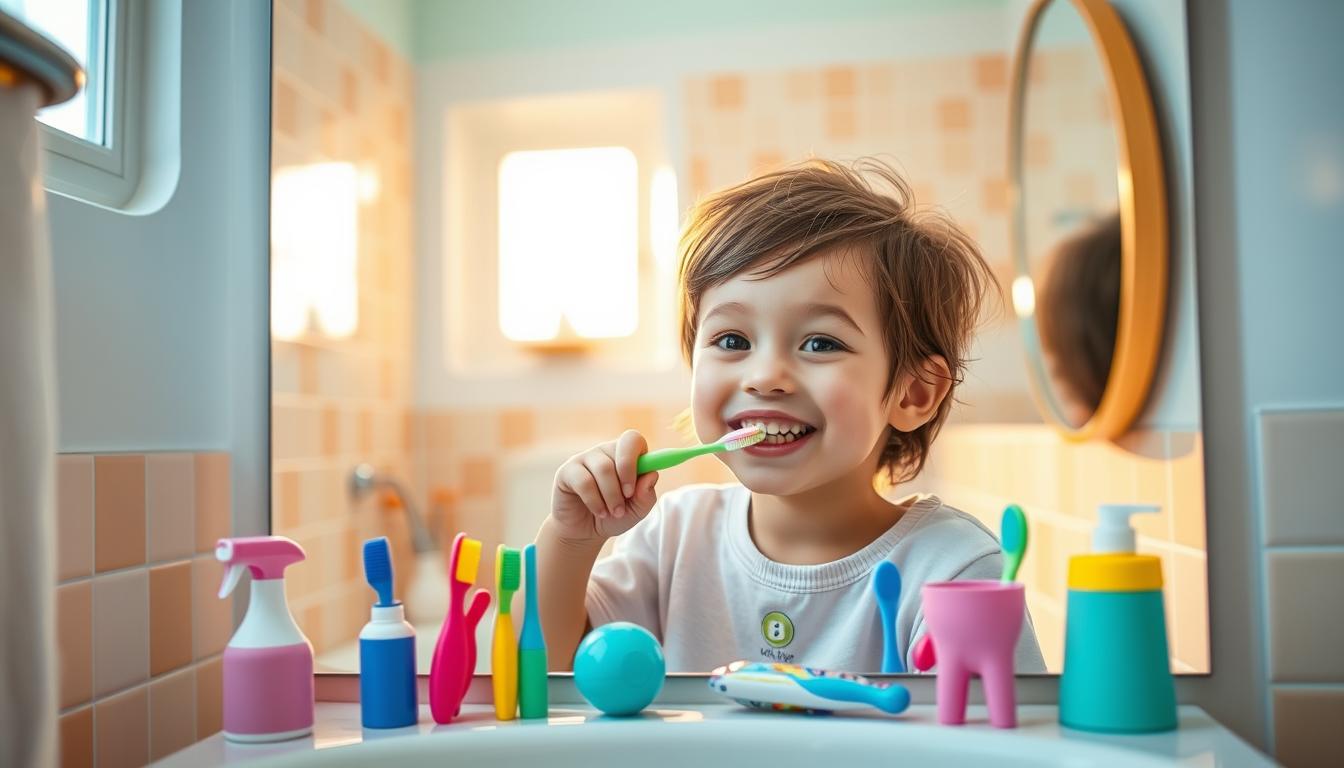
Ever wondered if your usual cleaning misses hidden germs? This question leads to a key question: What makes deep cleaning different from regular cleaning?
Regular cleaning focuses on the surface, but it might miss deep buildup. This buildup can cause long-term problems. Whether it’s hidden corners in your home or dental plaque, a detailed plan is essential. A scientific approach shows why deep cleaning is important for health.
Key Takeaways
- A regular wipe-down covers routine tasks and beyond but may skip hidden grime.
- Deep cleaning employs targeted techniques for hard-to-reach spots.
- Leftover contaminants can cause recurring problems over time.
- Dental and household deep cleaning share similar objectives.
- A strategic plan helps maintain cleanliness and overall well-being.
- Professionals use specialized tools to optimize cleanliness results.
Understanding Regular Cleaning
Many homes and clinics focus on keeping things clean and tidy. They do this to avoid small problems from getting bigger. Regular cleaning helps keep surfaces clean and stops harmful stuff from building up.
When we talk about deep cleaning vs regular cleaning, we focus on keeping a routine. This routine helps keep our daily lives organized.
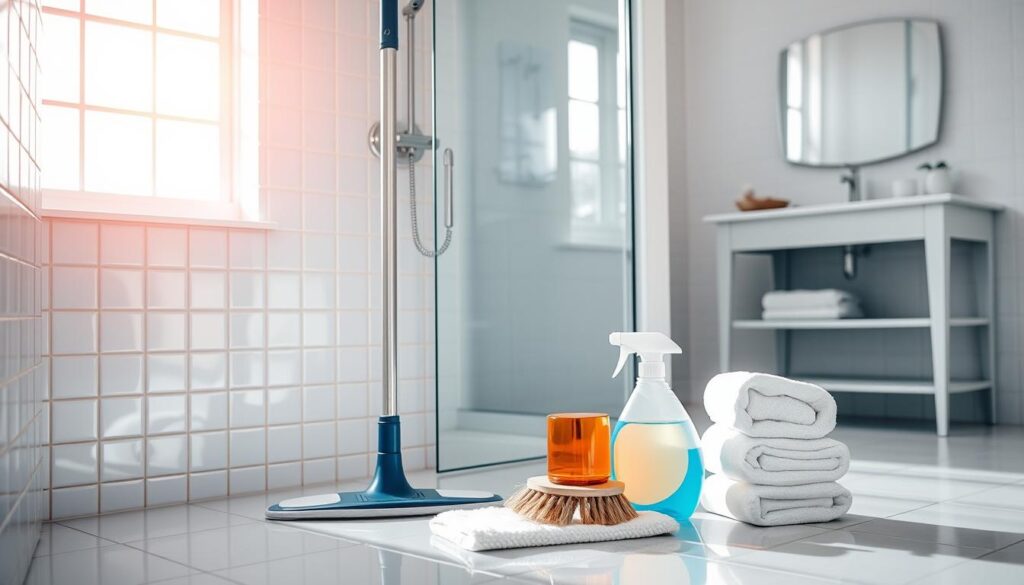
Purpose of Regular Cleaning
Regular cleaning keeps places clean and welcoming. It removes dust and allergens from homes. Dental offices clean teeth to prevent plaque.
This cleaning is important for keeping things in order. It helps us stay healthy and happy.
Frequency of Regular Cleaning
How often you clean depends on the place. Homes might need cleaning every week or two. Dentists suggest going for check-ups twice a year.
For more info on dental exams, experts say regular visits are key.
Common Areas Addressed
Cleaning tasks vary, but some areas are always targeted. These include:
- High-touch surfaces
- Floors and carpets
- Fixtures prone to residue
| Setting | Typical Tasks | Interval |
|---|---|---|
| Home | Vacuuming, wiping counters, disinfecting handles | Weekly or Biweekly |
| Dental Care | Scaling above gum line, polishing, routine exams | Twice a Year |
What is Deep Cleaning?
Some cleaning tasks focus on removing visible dust or light stains. Deep cleaning, on the other hand, targets hidden buildup and health concerns. It’s often compared to deep cleaning vs regular dental cleaning, showing each has its own benefits.
For those interested in preventive measures, check out this resource. It explains how routine care works with deeper cleaning.
Definition of Deep Cleaning
Deep cleaning uses advanced methods to remove dirt or harmful bacteria. It focuses on areas beneath surfaces and tackles tough residues. In dentistry, it involves scaling and root planing to fight plaque under the gums.
Frequency of Deep Cleaning
Experts suggest a cleaning schedule based on individual needs. Homes might need deep cleaning once or twice a year. Dentists recommend it for early gum issues. This intense cleaning helps keep health in check and prevents problems.
Commonly Cleaned Areas
Key areas include:
- Crevices behind appliances
- Air vents and window tracks
- High-touch surfaces prone to bacteria
In dental care, areas below the gum line get extra attention for better oral health.
| Task | Application | Key Impact |
|---|---|---|
| Appliance Pull-Out | Home Deep Cleaning | Eliminates trapped debris |
| Scaling & Root Planing | Dental Deep Cleaning | Reduces plaque below gums |
| Sanitizing Hidden Spots | Home & Dental | Prevents bacterial growth |
Key Differences Between Cleaning Types
When comparing deep cleaning to regular house cleaning, it’s important to look at the depth and scope of each. Routine cleaning focuses on the surface and basic cleanliness. Deep cleaning, on the other hand, targets hidden dirt and germs, aiming for a higher cleanliness standard. Is it smart to overlook the deeper layers of dirt?
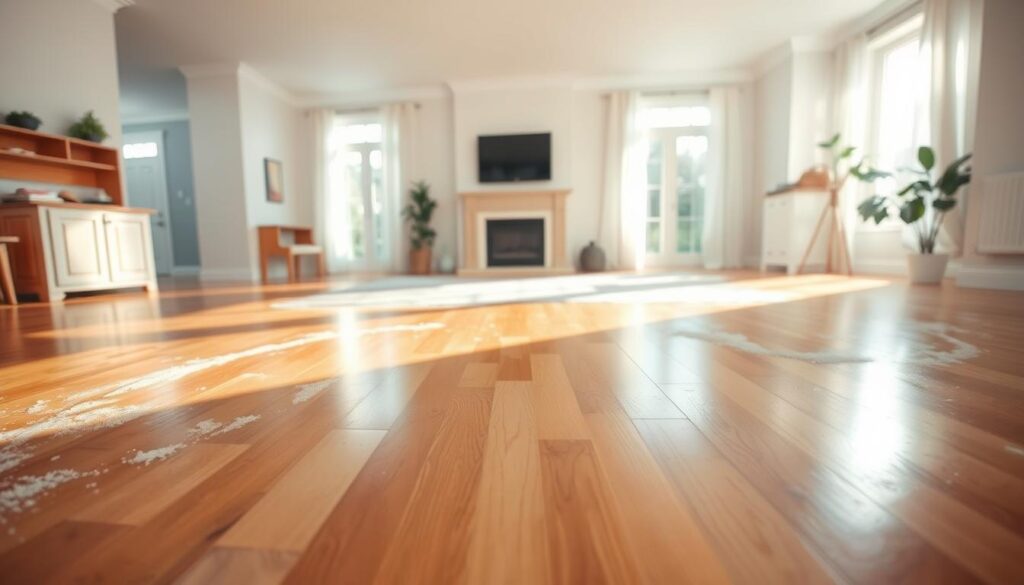
Depth of Cleaning
In homes and healthcare settings, the level of detail matters a lot. Basic cleaning deals with dust and spills. But deep cleaning goes after tough grime in vents, corners, and grout. This extra work helps keep health safe by getting rid of hidden germs.
Techniques Used
Professionals use scrubbing and rinsing to get rid of germs or hard deposits. In dental care, tools like ultrasonic devices are used to clean under the gums. This helps maintain long-term cleanliness.
Tools and Products
Deep cleaning uses strong chemicals, special brushes, and powerful vacuums. Regular cleaning sticks to general disinfectants. But deep cleaning uses specific formulas to kill tough germs. Choosing the right cleaning products is key to improving safety.
Benefits of Regular Cleaning
Keeping living and working areas clean is key to a healthier space. It means regular sanitizing, targeted disinfection, and removing debris. These steps help keep things tidy and lower the risk of minor contaminants.
In the debate between deep cleaning and regular cleaning, regular upkeep is vital. It stops serious buildup before it starts.
Maintenance of Home Appearance
A clean home welcomes everyone. People who clean weekly see their spaces shine. Floors stay fresh, and the whole place looks great.
A clean home can also boost positive habits and daily comfort.
Prevention of Allergens
Regular cleaning gets rid of pollen, dander, and dust mites. This helps those with allergies breathe easier. Vacuuming and wiping down surfaces often keeps allergens away.
Following a schedule, like routine cleaning checkups, is important. It keeps both homes and clinics healthy.
Convenience and Time Efficiency
Small cleaning tasks prevent big messes later. This is true for both deep cleaning and regular cleaning. Doing a little bit often saves time and money.
Short cleaning sessions fit into busy lives. They help manage small tasks without feeling overwhelmed.
Advantages of Deep Cleaning
Deep cleaning goes beyond the surface, changing how we care for our homes and mouths. It’s more than just a quick clean. It uncovers results that regular cleaning misses.
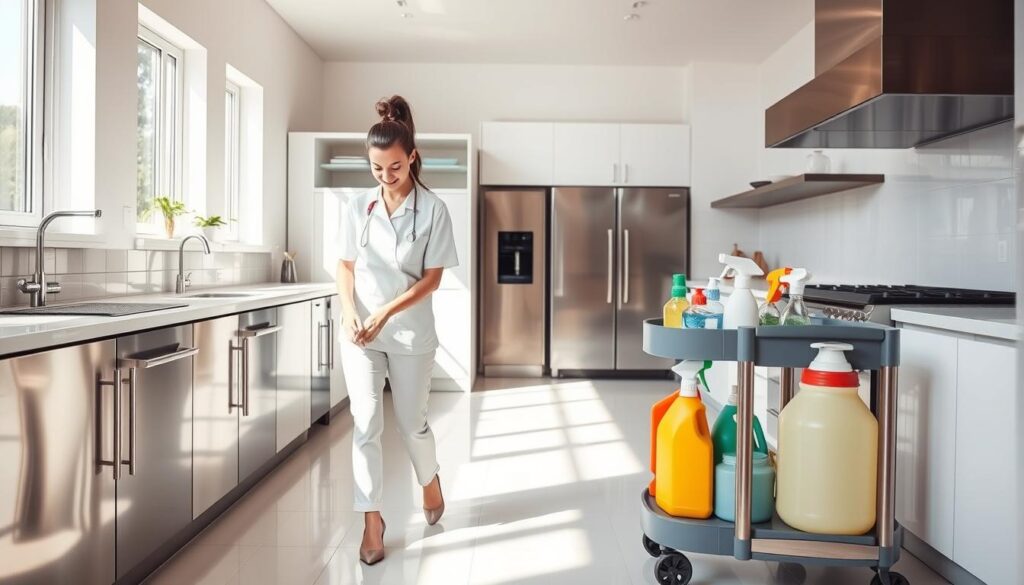
Health Benefits
Removing germs and tough stains keeps infections away. Carpets, furniture, and dental areas hide harmful particles. Deep cleaning stops bacteria, cuts inflammation, and makes spaces healthier.
Long-Term Cost Savings
Deep cleaning saves money in the long run. It spots mold and dental issues early, avoiding costly fixes. It’s an investment that prevents big problems and saves on expensive treatments.
Enhanced Indoor Air Quality
Dust and germs affect our breathing. Deep cleaning removes these, improving air quality. Combining deep cleaning with regular upkeep keeps air fresh and comfortable.
When to Choose Deep Cleaning
Your home or clinic might need a deeper clean at certain times. Knowing the difference between deep cleaning and regular cleaning is key. Deep cleaning gets into tight spots and takes out tough dirt that usual cleaning misses.
Preparing for an Event
Guests or colleagues want a clean place. A deep clean of carpets, baseboards, and hidden spots makes everyone feel at ease.
Moving In or Out
New people or future owners want a clean space. Cleaning corners, vents, and high-touch areas helps keep bacteria away for better health.
Seasonal Considerations
Seasons bring in allergens in the air. A detailed cleaning is essential, showing the difference between deep and regular cleaning. It gets rid of pollutants and makes the air fresher.
Cost Comparison: Deep vs. Regular Cleaning
Many wonder: What makes deep cleaning different from regular cleaning? The main difference lies in the scope of work. Prices vary based on time, specialized tools, and how detailed each cleaning is.
Average Pricing for Regular Cleaning
Regular cleaning includes vacuuming, dusting, and polishing surfaces. These services are usually priced moderately, taking a few hours. Homeowners find it a cost-effective way to maintain cleanliness. Dental care for routine plaque removal also falls into this category.
Average Pricing for Deep Cleaning
Deep cleaning requires more effort or advanced methods. It might involve removing appliances or using stronger disinfectants. Dental offices might use anesthesia for periodontal therapy. This extra effort increases costs but provides a deeper clean.
Factors Influencing the Cost
The size of the area, property layout, and the condition of surfaces or teeth affect the price. Renting equipment or using specialized disinfectants also adds to the cost. Some people look at this resource for more information.
We’re dedicated to helping you understand the price differences. It’s worth considering the long-term benefits of deep cleaning compared to regular cleaning.
Choosing the Right Cleaning Service
Choosing a reliable cleaning service means looking at their experience and methods. Is the team ready for tough tasks? The success of the job often depends on their training, openness, and follow-up. Homeowners should check for certifications and understand the difference between deep and regular cleaning to avoid confusion.
Factors to Consider
Many people consider:
- Credibility of the company and its history in the community
- Quality Assurance steps that ensure everything is done right
- Insurance Coverage for accidents or damage
Researching Local Options
Word of mouth and professional lists can provide insights. Look for staff background checks, written contracts, and safety measures for more confidence.
Reading Reviews and Testimonials
Online feedback is full of useful information. Look for common praises or complaints. See how the company responds to issues. This helps you understand their reliability.
| Key Aspect | Why It Matters | Practical Tip |
|---|---|---|
| Professional Training | Ensures consistent service | Request credentials or specialized certifications |
| Clear Pricing | Reduces hidden costs | Ask for detailed quotes before booking |
| Client Support | Facilitates smooth communication | Observe responsiveness and tone |
DIY vs. Professional Cleaning
Many families choose to clean up on their own because it’s easy and cheap. They brush their teeth well to keep plaque away. But, experts warn that ignoring tartar buildup can be risky.
Pros of DIY Regular Cleaning
Keeping things tidy makes your home feel welcoming. It also lets you control the cleaning. Many people enjoy doing chores themselves and saving money.
Cons of DIY Deep Cleaning
Dealing with tough dirt, mold, or plaque can be too much. It takes a lot of time and energy. Without the right tools or skills, you might miss spots or damage things.
When to Hire Professionals
Experts have the skills to clean hard-to-reach areas. They use special tools and know-how to clean safely. They offer solutions that last, giving you peace of mind.
Preparing Your Space for Deep Cleaning
Getting your space ready for deep cleaning can have a big impact. This is true for both homes and medical settings. Clearing off counters and floors makes it easier to clean. It also helps start fresh, improving both physical and mental health.
Decluttering Tips
Too many things can block your way and hide dirt. Here’s a simple way to sort what’s important:
- Store fragile objects in closed cabinets.
- Label boxes for quick retrieval.
- Gather documents or patient records in one folder.
Communicating Expectations
It’s important to talk about allergies, sensitive areas, or tough stains. Patients with dental needs should share their concerns. This way, every cleaning step meets their specific needs.
Scheduling Considerations
Choosing the best time for cleaning is key. Homeowners might want to keep family and pets away. Medical offices should plan patient visits to make cleaning easier and safer.
Maintaining Cleanliness After Deep Cleaning
Keeping a space clean after a deep clean is key. Clean areas, whether at home or in clinics, lead to better health. This stops germs and dirt from coming back.
Establishing a Cleaning Schedule
Having a cleaning plan is essential. Some people set aside a day each week for cleaning. Others do quick clean-ups every day. This keeps places clean and healthy.
Tips for Daily Maintenance
Small daily tasks can make a big difference. Clean countertops, throw away trash, and disinfect often. Vacuuming or sweeping regularly also helps get rid of allergens.
Importance of Routine Checks
Regular checks are important to keep things clean. Look for dust or moisture in hidden spots. In clinics, regular checks prevent health risks. This mix of deep and regular cleaning keeps places safe and clean.
Environmental Impact of Cleaning Methods
Cleaning isn’t just about making things look good. It’s also about keeping our planet safe. Choosing products that don’t harm the environment is key. Whether you’re deep cleaning or just keeping things tidy, making smart choices helps both our homes and the Earth.
Eco-Friendly Cleaning Products
Look for cleaners with ingredients that break down easily. Products without harsh chemicals are better for our water and skin. Also, using reusable cloths instead of disposable wipes helps a lot.
Sustainable Practices
Using water and energy wisely is important. Hospitals use special cleaning methods to save water. At home, focusing on what really needs cleaning helps save resources.
Reducing Waste in Cleaning
Using things over and over again is a big help. This means using reusable tools and containers. Making these small changes can make a big difference in keeping our planet clean.
| Method | Focus | Environmental Advantage |
|---|---|---|
| Biodegradable Products | Plant-based Surfactants | Lower Pollution |
| Microfiber Cloths | Reusable Materials | Reduced Waste |
| Targeted Cleaning | Precision Coverage | Less Resource Usage |
Final Thoughts on Cleaning Types
Deep cleaning and regular cleaning are key to healthier spaces and peace of mind. Each method is important for removing dirt and preventing damage. They help with surface buildup or deep grime and bacteria.
Summary of Key Points
Regular cleaning keeps things tidy and dust away. Deep cleaning gets into hidden spots where dirt hides. Finding the right balance is important for a clean and welcoming space.
Making the Best Choice for Your Needs
Choosing between deep cleaning and regular cleaning depends on your needs. Some prefer daily cleaning, while others need deeper cleaning for tough issues. Getting advice from experts can help make this choice easier.
Encouragement to Prioritize Cleanliness
Cleanliness is more than just looks. It makes our living spaces healthier and reduces stress. It also supports medical research and education. By focusing on cleanliness, we create a safer and more comfortable future for all.


